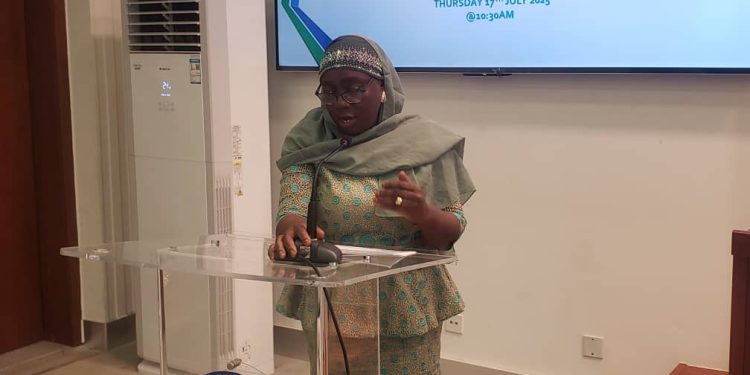The Ministry of Planning and Economic Development (MoPED) hosted the High-Level Reflection Dialogue for the 4th Monitoring Round of Global Partnership for Effective Development Cooperation (GPEDC) under the theme: “Stronger Partnerships for Sustainable Development.”
The GPEDC is a multi-stakeholder platform aimed at enhancing the effectiveness of all forms of development cooperation. It brings together governments, civil society, the private sector, and other actors to promote impactful and sustainable development aligned with the Sustainable Development Goals (SDGs).
The platform champions the implementation of effective development cooperation principles, mutual accountability, and stronger partnerships.
The event drew prominent personalities from Ministries, Departments, and Agencies (MDAs), development partners, civil society organizations, and the private sector.
In her opening remarks, the Minister of Planning and Economic Development, Madam Kenyeh Barlay, acknowledged the robust and wide-ranging participation of stakeholders in the monitoring process. She noted that the GPEDC exercise was highly inclusive, secured political buy-in from all actors, and was informed by data collected through multiple engagements with MDAs, civil society, development partners, and the private sector.
“We have obtained high-quality data and outcomes that will guide necessary behavioral shifts among stakeholders, with the aim of improving the overall effectiveness of development cooperation in Sierra Leone,” Madam Barlay emphasized.
She further underscored the strategic implications of the findings of the National Development Cooperation Framework and development partners’ country strategies.
She called for sustained efforts by both government and partners to create an enabling environment for civil society and private sector actors, to allow for broader resource mobilization and impactful spending towards development results.
The Minister highlighted Sierra Leone’s improved global standing, with an overall score of 85% for the quality of its development planning processes and significant progress in the use of country systems by development partners. While acknowledging challenges related to accountability mechanisms, data, and progress tracking, she reiterated the importance of upholding the principles of effective cooperation and called for collective performance.
In conclusion, Madam Barlay expressed appreciation to all participants and urged coordinated strengthening and shared commitment for effective development cooperation in Sierra Leone.
Mr. Robert Banamwana, Head of the UN Resident Coordinator’s Office, commended the Government of Sierra Leone and all stakeholders for their commitments in enhancing the effectiveness of development cooperation in support of the SDGs.
He reaffirmed the United Nations’ strong support for the GPEDC principles of country ownership, results-based approaches, inclusive partnerships, and mutual accountability as essential pathways to sustainability and tangible outcomes for the people of Sierra Leone.
Mr. Banamwana further stated that the findings are timely and align with the United Nations Sustainable Development Cooperation Framework (UNSDCF).
He assured the UN’s continued commitment to supporting the Government of Sierra Leone in implementing the recommendations, including data- and evidence-driven decision-making, transparency, fiscal integrity, institutional engagement, and inclusive partnerships.
He concluded by encouraging sincere and bold collaboration among all stakeholders.
Providing an overview of the monitoring process and reviewing Sierra Leone’s results, Madam Abie Elizabeth Kamara, Director of the Development Assistance Coordination Office at MoPED, alongside Mr. Abass Kargbo, Senior Aid Management Officer, highlighted that the outcomes were achieved through extensive consultations with key stakeholders including trade unions, civil society, the domestic private sector, philanthropic organizations, sub-national actors, and development partners.
Mr. Kargbo also presented key recommendations from the Reflection Dialogue held on 25th June 2025, which call for proactive steps such as enhancing data availability and statistical systems, increasing development partners’ use of national systems, strengthening parliamentary oversight, improving accountability mechanisms, and bolstering public financial management systems.
Participants from across sectors appreciated MoPED’s leadership and encouraged the Ministry and the Government to remain committed to efficient, data-driven, inclusive, and accountable development cooperation.
In his closing remarks, Mr. Usman C. Conteh, Development Secretary I, reflected on the key areas discussed and emphasized the need for unified efforts to transform Africa into a developed and attractive continent through effective use of natural resources for domestic development financing.
Credit: John Farfira Kamara johnfarfirakamara@gmail.com










